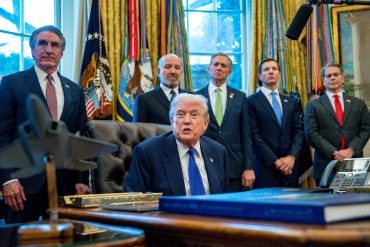
Harvard Appeals to Industry After Federal Research Funds Cut
5 minute read

Federal research funding cuts leave over 100 Harvard labs struggling to pay scientists and maintain critical studies
Key Takeaways
- Over 100 Harvard researchers lose federal funding as sweeping cuts terminate the majority of federally funded research projects, affecting salaries for graduate students, postdocs, and lab technicians.
- $250 million emergency allocation from Harvard announced by President Alan Garber to support research operations disrupted by federal funding terminations over the next year.
- Education Secretary blocks new federal grants to Harvard, escalating Trump administration conflicts with the university following previous cuts totaling $2.65 billion in federal research funding.
Introduction
Harvard University faces its most severe federal funding crisis as more than 100 researchers receive termination notices for federally funded projects. The widespread cuts represent the biggest tangible impact yet from the ongoing dispute between the Trump administration and the prestigious institution.
The termination notices inform recipients that their projects ended “per notice from the federal funding agency,” immediately affecting entire research operations across Harvard’s laboratories. Graduate students, postdoctoral fellows, and lab technicians who depend on these grants for salary support face immediate financial uncertainty.
Key Developments
Harvard Assistant Vice President for Sponsored Programs Kelly Morrison and Chief Research Compliance Officer Ara Tahmassian warned researchers that federal agencies terminated the majority of Harvard’s awards. The cuts follow a pattern of escalating federal actions against the university this year.
The funding crisis began with a $2.2 billion reduction in April, followed by another $450 million cut weeks later. Education Secretary Linda McMahon’s recent letter to Harvard announces the institution will no longer receive new federal grants, citing concerns about academic rigor and federal law compliance.
McMahon argues Harvard should rely on its substantial endowment and wealthy alumni base rather than federal funding. The letter demands “common sense” reforms and accuses the university of mismanaging its educational responsibilities, though the administration has not provided evidence of specific non-compliance.
Harvard President Alan Garber responded by announcing $250 million in emergency funding over the next year to support affected research operations. The university previously pursued legal action following the freeze of $2.26 billion from its estimated $9 billion in grants and contracts.
Market Impact
The funding terminations create immediate financial pressures across Harvard’s research ecosystem. Chemistry professor Eric Jacobsen expresses concern about supporting his team of graduate students and postdocs who depend entirely on federal grants for salaries.
Research programs face immediate operational challenges. The Research Experience for Undergraduates program at Harvard’s School of Engineering and Applied Sciences joins numerous other initiatives affected by the widespread terminations.
Harvard’s pivot toward private sector partnerships illustrates the funding gap. İş Private Equity commits $39 million over ten years to support metabolic disease research, financing a laboratory at the T.H. Chan School of Public Health. However, private funding cannot fully replace the scale and consistency of federal support.
Strategic Insights
The crisis highlights the vulnerability of research institutions dependent on federal funding streams. Harvard’s substantial endowment provides some buffer, but the university’s research operations require consistent funding flows that private donations cannot easily replicate.
The dispute signals broader tensions between the federal government and elite academic institutions. The administration’s focus on Harvard’s wealth and alumni connections suggests similar challenges may affect other well-endowed universities receiving significant federal research support.
Lab directors across Harvard implement emergency measures to maintain operations. Many use personal savings and industry partnerships to support their research teams, demonstrating the immediate adaptation required when traditional funding disappears.
Expert Opinions and Data
Professor Benton Taylor from Organismic and Evolutionary Biology identifies the core concern: “The largest and most immediate concern is the financial security of the postdocs, graduate students, technicians, and others working in these labs who are incredibly committed to their work and often in financially vulnerable situations.”
Research leaders prioritize keeping their teams employed despite funding uncertainty. According to Harvard, many lab directors focus on maintaining employment for vulnerable team members while seeking alternative funding sources.
The scale of Harvard’s federal funding demonstrates the crisis magnitude. The university’s $9 billion in grants and contracts represents substantial research infrastructure supporting numerous scientific disciplines and breakthrough discoveries.
Conclusion
Harvard’s federal funding crisis creates immediate challenges for research continuity and personnel stability across the university. The administration’s emergency allocation provides temporary relief, but long-term research operations require sustainable funding solutions.
The dispute between Harvard and federal agencies establishes precedent for government-university relations during the current administration. Research institutions nationwide monitor these developments as potential indicators of broader federal funding policy shifts affecting academic research infrastructure.







